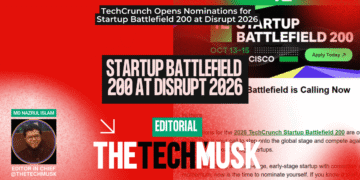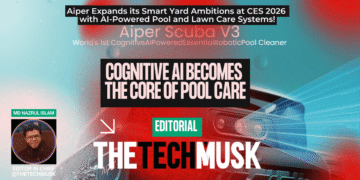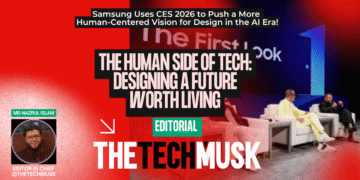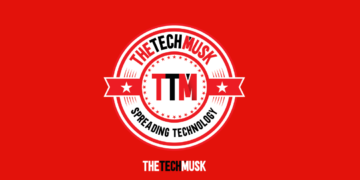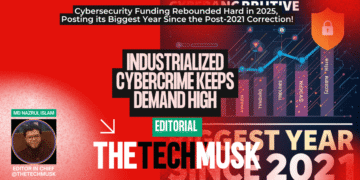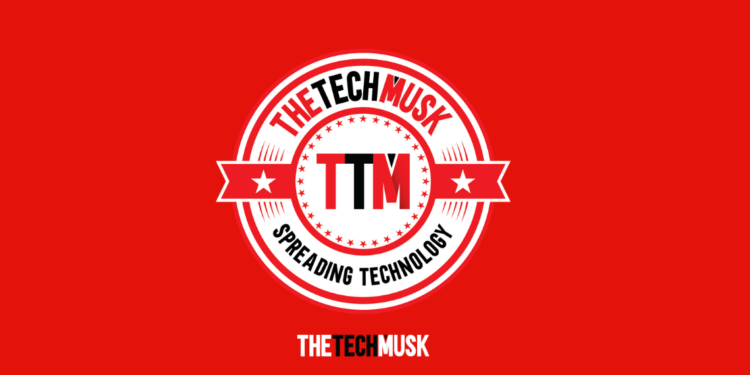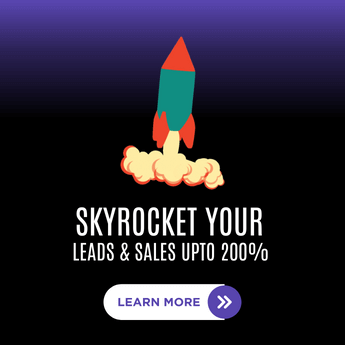Brian, can you tell us a bit about yourself and your journey to becoming an expert in the tech industry?
I’ve spent the better part of two decades working across product, design, and business leadership roles in companies that span the spectrum from Fortune 100 giants like Amazon and Walmart to early-stage startups navigating chaotic growth.
Like many folks in the product, I didn’t start with some clear plan to land where I did. If anything, I’ve optimized my career path for breadth of opportunities rather than depth. I studied game theory at Princeton, with the equivalent of a minor in computer science, and later earned my MBA from UNC’s Kenan-Flagler with a quadruple focus on entrepreneurship, consulting, supply chain, and marketing.
I kicked off my product journey at Amazon, where I took a crash course in scale and structure and learned how to build products that move the needle. That experience taught me a lot about operational rigor and the limits of the process when you’re trying to move fast or work creatively.
Over the years, I’ve led product and design teams through full re-architectures, rapid pivots during the COVID crisis, and post-acquisition turnarounds. At startups and scale-ups like Fundera, Huckleberry, and Assurance IQ, the stakes were high; sometimes it was about keeping the business afloat, other times about driving toward profitability for the first time.
For as many products as I’ve shipped that helped a company achieve its goals, I’ve tried an order of magnitude more things that didn’t work. I don’t see that as failure; it’s where the real learning happened. At this point, there’s very little you can throw my way that I haven’t wrestled with directly and broken down to its fundamentals.
These days, I founded and run Rooted in Product, where I offer fractional Chief Product Officer services and help companies solve people and product challenges that don’t come with easy answers. I enjoy working on problems where theory and standard frameworks start to break down.
I’ve lived through the ambiguity, the layoffs, the pressure, and the urgency that define the modern product landscape. That real, lived experience and the ability to pivot from failure into success is what I bring to the table.
What pivotal moments or decisions in your career path led you to your current position in tech?
One of the most pivotal moments in my career (and frankly, one of the more jarring ones) was getting laid off in early 2023. That in itself would’ve been enough to prompt me to pause and reassess, but a few months later, the company shut down entirely. Not because of anything scandalous or negligent, but simply because we hadn’t been able to build a profitable, customer-centric product fast enough.
It was humbling, to say the least. I’d spent the better part of 15 years building towards becoming a CPO, following what I thought was a fairly stable, upward path. And then in one short stretch, it all felt like it unraveled.
That moment coincided with a broader shift I was already starting to notice. AI was already gaining traction fast, and tech companies were beginning to treat middle management not as essential infrastructure, but as overhead.
There was this growing idea that you could skip the human layers of interpretation, mentoring, and nuance, and just go straight from strategy to execution. A lot of the roles that helped shape culture, coach early-career PMs, and translate ambiguity were getting cut.
So I stepped back and asked myself, what do I want to build? What am I good at that’s still needed, even if the traditional org chart doesn’t make room for it anymore?
That’s what led to Rooted in Product. Not some grand vision I had all along, but a clear response to the gaps I was seeing. Companies still need thoughtful product strategies guided by experience and expertise. They still need someone who’s been through hard decisions, weird edge cases, and broken systems and knows how to help others navigate them.
They still need people who are committed to fostering talent and teaching others how to succeed, not just sink or swim. Those needs didn’t go away just because the funding environment shifted or AI got better. In a lot of ways, it only made the need more urgent.
So I’ve stopped chasing titles and started building something of my own. Something that can flex with the times, but still deliver the kind of long-term, human-centered impact I care about.
The tech landscape is constantly evolving. What emerging technology excites you the most, and what potential impact do you think it will have?
I’m excited about AI; there’s no getting around that. Not just because of the raw capability it brings, but because of the environment it’s creating and the irony that the skills AI is claimed to replace may soon become even more valuable.
The barrier between having an idea and building it is collapsing fast. You don’t need a team, you barely need technical skills, and you certainly don’t need weeks or months. The idea you had this morning can be live by this afternoon.
But that shift comes with consequences. In a world where anyone can build anything, the real question becomes: why is it being built?
That’s where the quality gap starts to show. Best practices, frameworks, and templated toolkits can keep you from building something truly bad, but they aren’t sufficient in and of themselves to get you to something great. They don’t offer the nuance, the judgment, or the sense of customer experience that makes a product resonate. And when that’s missing, we end up with a flood of ideas that are poorly executed, all being cycled through endless rounds of experimentation in hopes of stumbling onto something that truly reflects what customers want.
This is where real product expertise matters. Not just execution know-how, but a deep understanding of users, context, and behavioral nuance. The kind of insight that lets a seasoned PM or designer shortcut the guesswork and intuitively land closer to customers’ real needs, without needing to run 50 A/B tests to get there.
AI lowers the cost of building. But without thoughtful, customer-centered judgment behind it, we’re just going to be buried in a sea of mediocrity. What will separate the products that survive from the ones that fade is not the output of what gets built, but the input of why.
In your experience, what are some essential skills or traits that every tech professional should strive to develop for long-term success?
From where I sit, long-term success in tech has less to do with mastering any single tool or framework and a lot more to do with how you think, how you communicate, and how you adapt.
First, you’ve got to build real comfort with ambiguity. In tech, the only constant is that everything changes. Markets shift, org charts implode, and roadmaps get rewritten overnight. If you’re waiting for someone to hand you a fully scoped plan, you’re going to be left behind. The people who thrive are the ones who can sit with messy, incomplete information and still move forward with purpose.
Second, develop your judgment. Tools will come and go, and AI will accelerate a lot of execution, but critical thinking isn’t going anywhere. You have to be able to evaluate trade-offs, ask the right questions, and see the downstream impact of your decisions. That’s what turns a good contributor into someone people trust to lead.
Third, learn how to communicate clearly and empathetically. Whether you’re writing a product spec, aligning stakeholders, or giving feedback to a teammate, your ability to make complex ideas accessible and to bring others along for the ride is ultimately going to define how far you can go. The best idea poorly communicated isn’t going to gain traction or have an impact.
Lastly, curiosity and self-direction matter more than ever. The people who grow over time are the ones who keep learning, not just because someone told them to, but because they genuinely want to understand how things work. That’s especially important in an environment where formal mentorship structures are thinning out. If you’re not actively seeking out your learning, no one’s going to hand it to you.
So yes, technical skills are important, but they’re only part of the equation. The folks who last, and lead, are the ones who combine solid execution with self-awareness, systems thinking, and the humility to keep getting better.
How do you stay updated with the latest advancements and trends in the ever-changing world of technology?
For me, staying current isn’t about chasing every new fad or headline. It’s about filtering signal from noise and making sure I’m close enough to the edge to stay informed, while remaining grounded in what matters.
I read a lot, but I’m selective about it. I focus on a handful of trusted sources that prioritize thoughtful analysis over hype. That might mean industry blogs, long-form essays, or niche newsletters written by people who are practitioners first and commentators second. I also pay attention to what’s happening in the spaces where builders are active. Not just the polished posts on LinkedIn, but the open-source communities, Slack groups, and the back channels where people are testing, iterating, and sharing in real-time.
That said, reading only gets you so far. It’s one thing to understand how other people are using something, and another entirely to understand how to make it work for you. I’ve incorporated AI into my day-to-day workflow, not just to stay fluent, but to understand its boundaries. I want to see where it excels, where it falls short, and what it takes to get value out of it. That kind of hands-on feedback is far more useful to me than any trend report.
Finally, I stay in conversation. I talk to founders, designers, engineers, PMs, and anyone who’s deep in the work. Those discussions, even quick ones, often give me the clearest sense of what’s real versus what’s just being hyped. When a few sharp people start pointing to the same pattern, that usually signals something worth watching.
So staying up to date isn’t about reading, adopting, or doing everything. It’s about staying connected to the work, to the tools, and to the people building the future in real-time.
Diversity and inclusion are crucial in the tech industry. What steps can companies and individuals take to foster a more inclusive and equitable tech community?
The first thing I’d say is that you can’t approach diversity and inclusion as a box to check. If it feels like a compliance task, you’re already off track. This work has to be baked into the way a company hires, builds, and leads, not bolted on after the fact.
At the company level, it starts with being honest about who’s at the table and who isn’t. If your team is lacking in diverse perspectives, don’t just ask how to fix the numbers. Ask why the current environment may not be attracting or retaining people with different lived experiences. That requires looking at your systems, your incentives, and your culture with a critical eye.
Hiring is an obvious piece, but it’s just the starting point. It’s about how you write job descriptions, where you source candidates, how you run interviews, and how you evaluate potential. Are you optimizing for a narrow definition of “culture fit,” or are you building toward a broader definition of “culture add”? Because that shift in mindset makes a huge difference in who you bring in and how they thrive once they’re there.
Once someone’s on the team, inclusion comes down to power and voice. Who gets heard in meetings? Who gets real opportunities for growth and leadership? Who gets the benefit of the doubt? These are cultural dynamics that often operate below the surface, but they’re exactly where inclusion either succeeds or fails. Leaders need to make space, amplify underrepresented voices, and be accountable for the systems they’ve created.
On an individual level, I believe very strongly that it’s about listening more than talking. Stay curious, seek out perspectives you don’t already have, and be willing to unlearn. If you’re in a position of privilege or influence, use it to make room for others. That might mean stepping back so someone else can step up, or advocating for structural changes even when it doesn’t directly benefit you.
Just as we don’t build products solely for ourselves, but with a deep understanding of the diverse needs of our customers, the same mindset should guide how we build our teams, our cultures, and our companies.
None of this is one-and-done work. It takes ongoing effort, feedback, and humility. But if we want to build products that serve a diverse world, we need teams that reflect that world, not just in who they are, but in how they work together.
Looking ahead, what advice would you give to your younger self just starting out in the tech field?
I think I’d tell myself a few things that would’ve saved some stress, some wasted motion, and probably a few gray hairs.
First, stop worrying so much about your career trajectory. The tech industry is going to change faster than you expect, and the role you think you want today might not even exist in five years. What matters more than climbing some predefined ladder is learning how to navigate ambiguity, stay curious, and build a toolkit that travels well.
Careers are far from linear. In the long run, you’ll get further by taking calculated risks and advantages of promising opportunities than by focusing on the next rung of the career ladder.
Second, remember that it doesn’t matter if you’re right if no one believes in you or your solution. Intellectual rigor is important, but it’s only half the game, and arguably not even the half that matters most. You have to learn how to communicate ideas in a way that earns trust, creates alignment, and brings others along with you. Great ideas die all the time when they’re delivered in the wrong way, or by someone who hasn’t built the relationships that give those ideas a chance to live.
Third, don’t underestimate how much of your career will be shaped by the people around you. Find mentors. Learn from peers who think differently than you. And as soon as you can, become that support for someone else. The relationships you build will carry you further than your resume ever will.
Thanks for sharing your knowledge and expertise. Is there anything else you’d like to add?
If there’s one thing I’d add, it’s to reinforce that working in tech is not just about output. It’s about people. It’s easy to lose sight of that when we’re buried in roadmaps, metrics, and tools. But at the end of the day, we’re building for real human beings, with real needs, real constraints, and real lives. And we’re building with real people too: our teams, our peers, our partners. That layer of empathy and thoughtfulness is what separates short-term wins from lasting impact.
So no matter how fast things change, or how advanced the tools become, don’t forget the fundamentals: listen well, stay curious, and care about the people you’re building for. Everything else stems from that.

